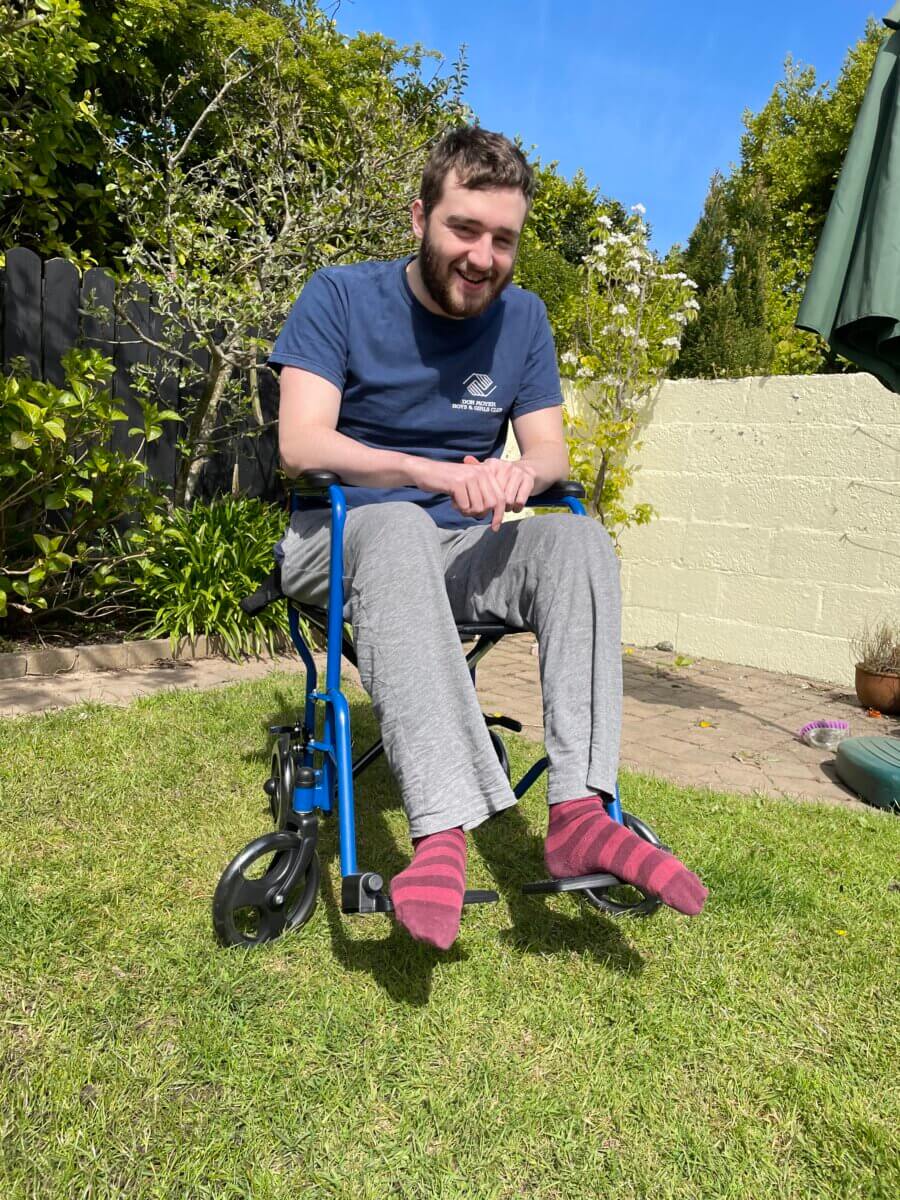BANGOR, Northern Ireland — A medical student says his life has been “ruined” after long COVID left him permanently disabled and forced him to drop out of school. Dylan Kelly studied chemistry at the University of Manchester and was an avid footballer, swimmer, and gym goer before contracting COVID-19 in February 2020.
He had just been accepted to study medicine at Queen’s University Belfast and was hoping to become a doctor after graduation. Dylan’s COVID infection cleared but his brain fog and fatigue persisted, so doctors diagnosed him with long COVID in May 2020 and chronic fatigue syndrome (CFS) in August 2020.
His long COVID caused the chronic fatigue syndrome, brain fog that makes it difficult to even understand speech, a debilitating lack of energy, nerve pain, and migraines. As a result of his severe symptoms, he has declined his offer to the university, can’t work, and gave up exercise completely as he is a wheelchair bound.

“My disability has ruined my life. I had an offer for med school which I had to turn down,” the 25-year-old says in an online video.
“I don’t have the energy to have a social conversation without my brain fog becoming so bad it feels like I can’t understand English. I have even less energy than before. This has left me in a wheelchair, and I spend almost all my time in bed; not how I envisioned my 20’s were going to be.”
Dylan now lives with his parents, Janet Force and Gerard Kelly, because there are times when he is unable to even move around in bed. Janet, a civil servant in the United Kingdom, has had to change the departments and teams she works in so she can work from home part-time and care for Dylan.
“Without my mum looking after me it would be impossible to live,” Dylan says. “I’ve been keeping myself occupied with Netflix, Tiktok, and messaging my friends because that’s about all I can do.”

Dylan visited a neurologist in August of 2022 and was told that his COVID may have attacked his nervous system, causing his disability. Between 150,000 and 250,000 people in the United Kingdom have chronic fatigue syndrome and the disease has no known treatments. According to the CDC, 836,000 to 2.5 million Americans have CFS, but most have never received an official diagnosis.
As for Dylan’s future, the 25-year-old says he has given up his dreams of becoming a doctor.
“I try not to think about my future at all and just try to get through each day. I had to learn to live with this disability and grieve my old life. I had to accept I would not become the doctor I had dreamed of being. Eventually, it got easier but it’s still not easy.”
“I was in long COVID support groups online but I soon left them because people were posting recoveries when it seemed like I was just getting worse. My belief is the only way I’ll recover from this illness is if a treatment is found; without a treatment I’ll be forced to live the rest of my life in bed,” Dylan continues.
“I can’t exercise because if I do my symptoms get worse and my overall health suffers meaning I have even less energy than before. I was part of a football team, went to the gym three to four times a week and was very socially active. I have had friends come round to visit me but that exhausts me quickly so it never feels worth it. I can no longer plan and look forward to exciting things because my life is just stuck in this bed. However, if I miraculously woke up cured I’d definitely be reapplying to med school.”
Long COVID has 7 persistent symptoms
COVID researchers have been studying long COVID for almost as long as the viral itself. While some teams have identified more than 200 symptoms with a link to long COVID, one study argues there are typically only seven which patients persistently experience for weeks, months, and possibly years.
The seven long COVID symptoms are:
- Rapid heartbeat
- Hair loss
- Chest pain
- Fatigue
- Joint pain
- Shortness of breath
- Obesity
“Despite an overwhelming number of long COVID symptoms previously reported by other studies, we only found a few symptoms specifically related to an infection from SARS-CoV-2, the virus that causes COVID-19,” says corresponding author Chi-Ren Shyu, director of the MU Institute for Data Science and Informatics, in a university release.
South West News Service writer Leo Black contributed to this report.

